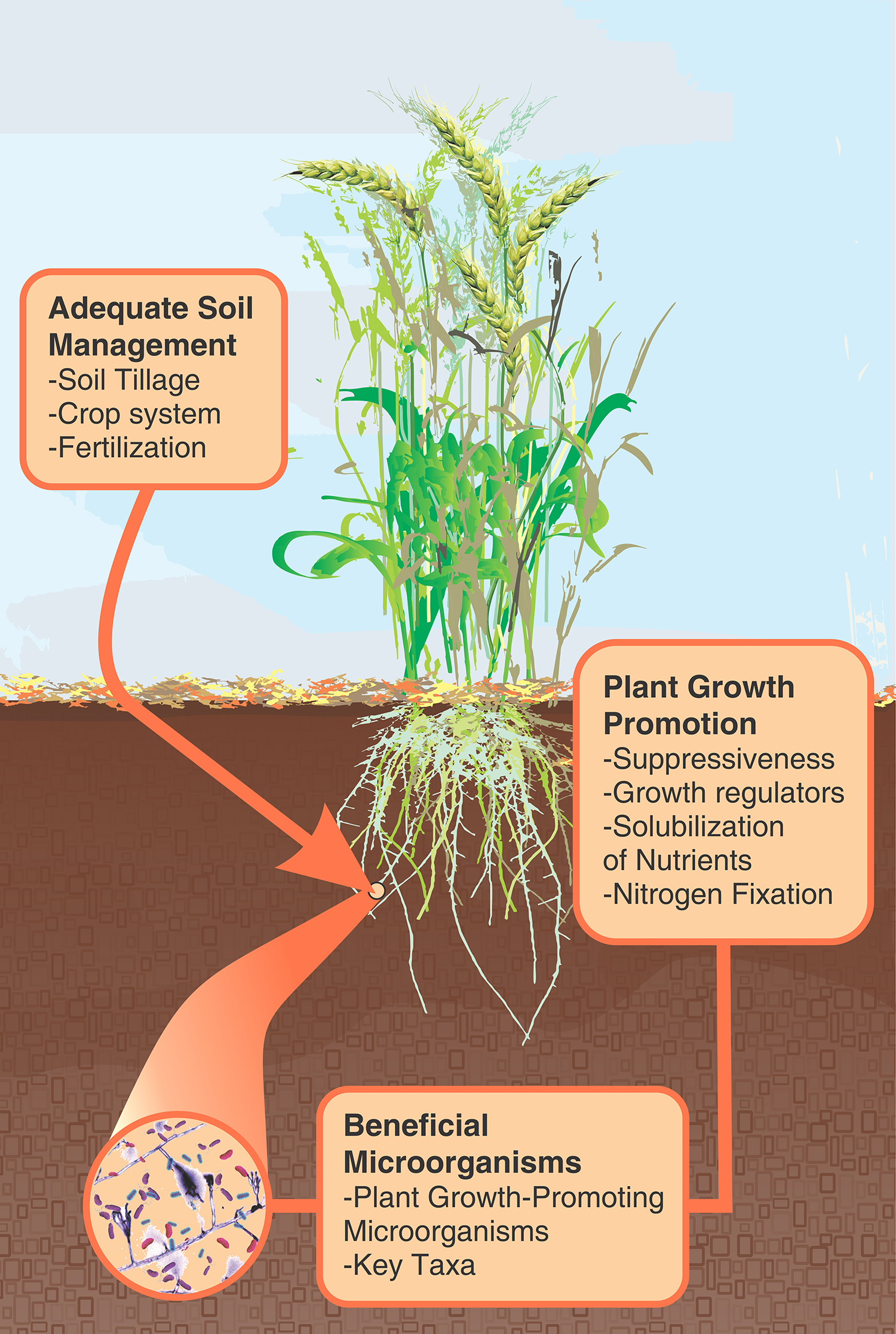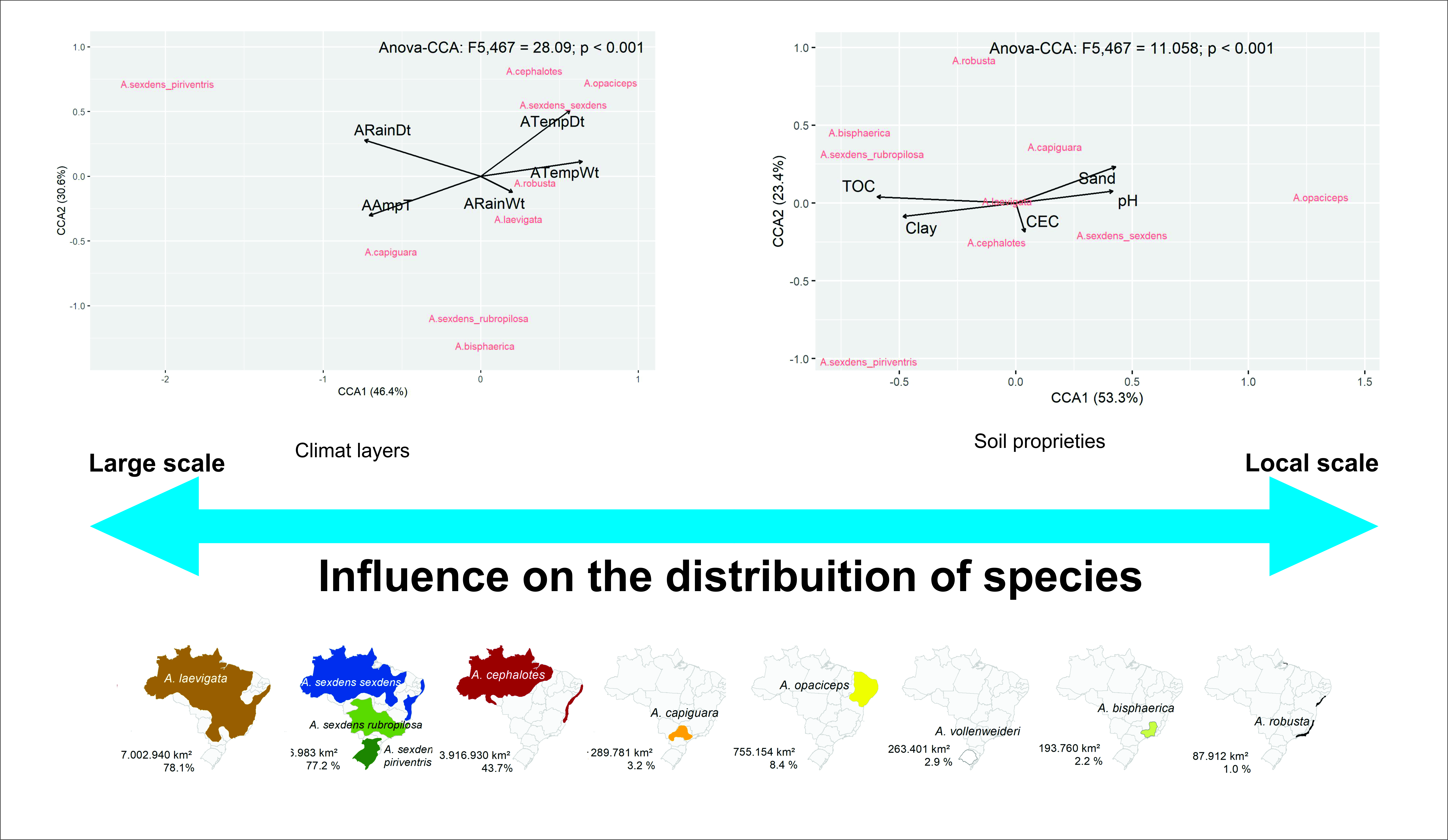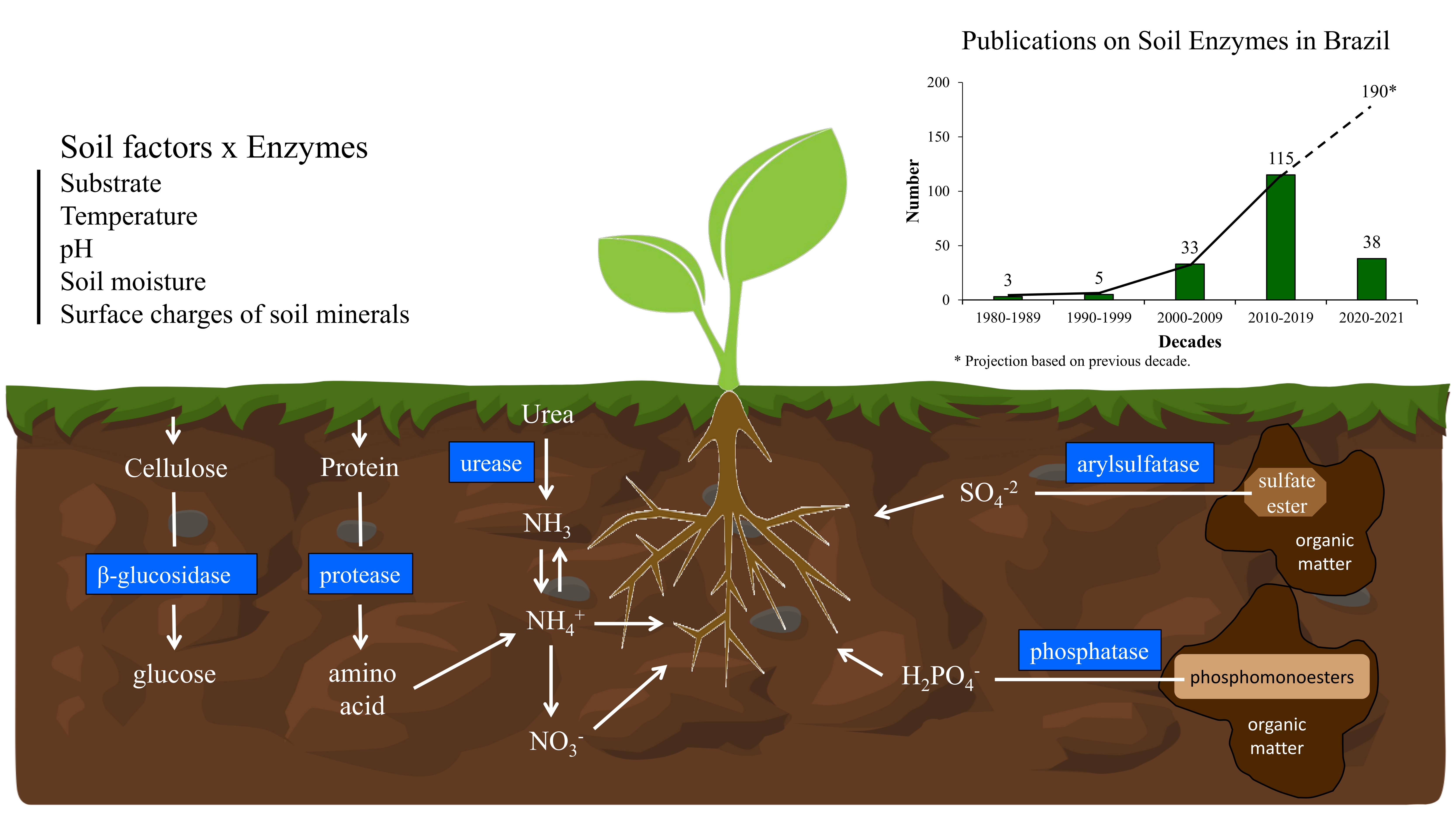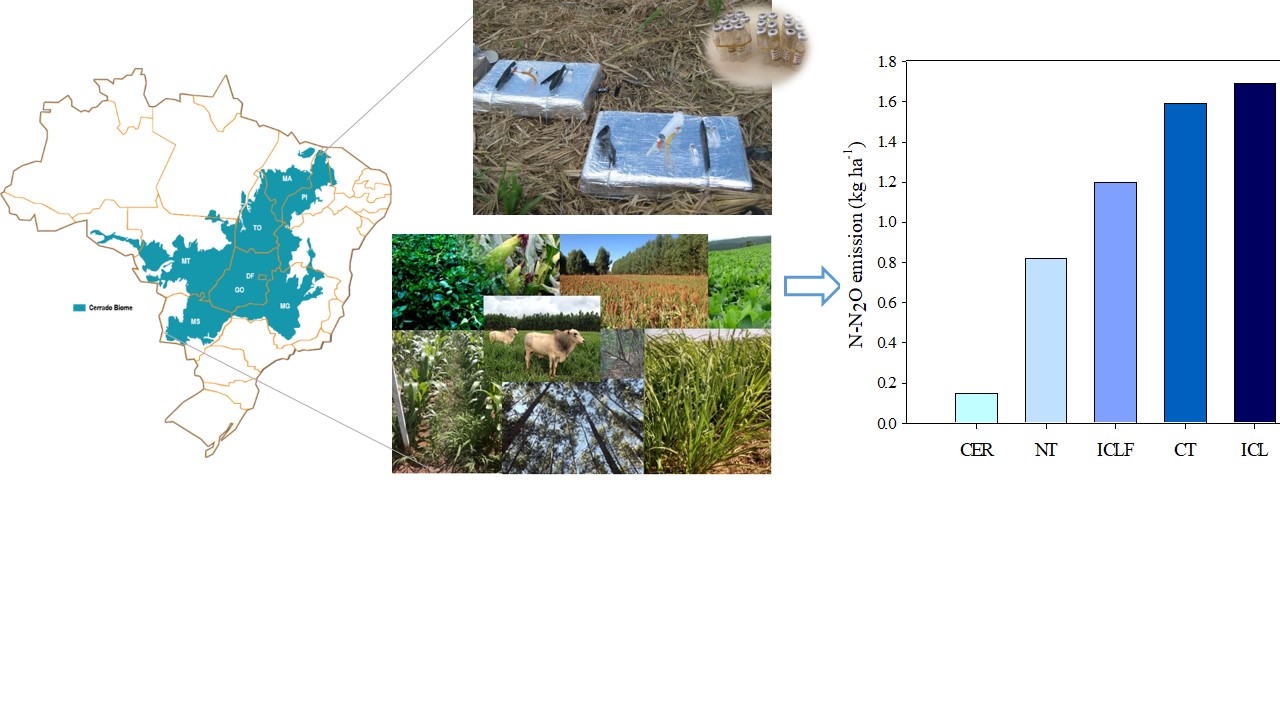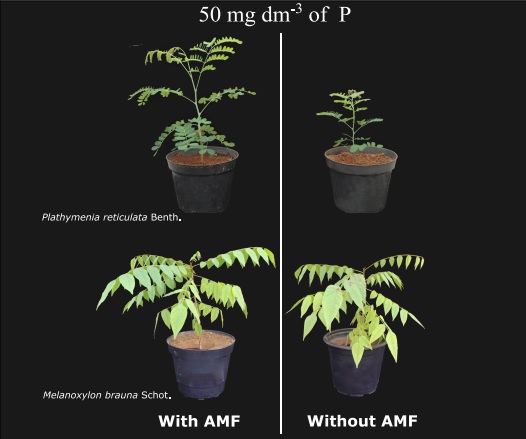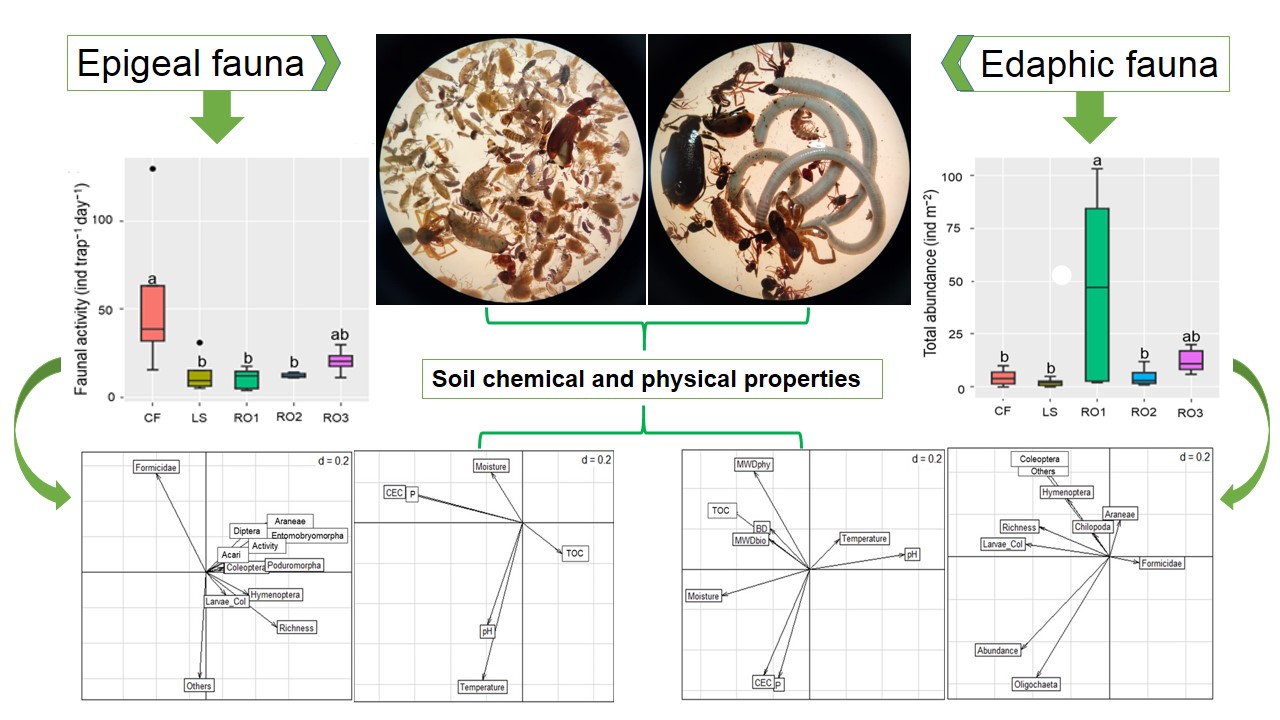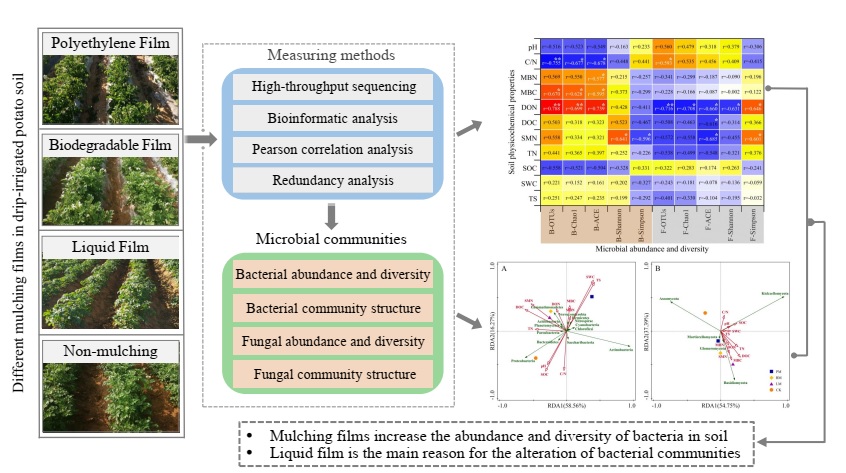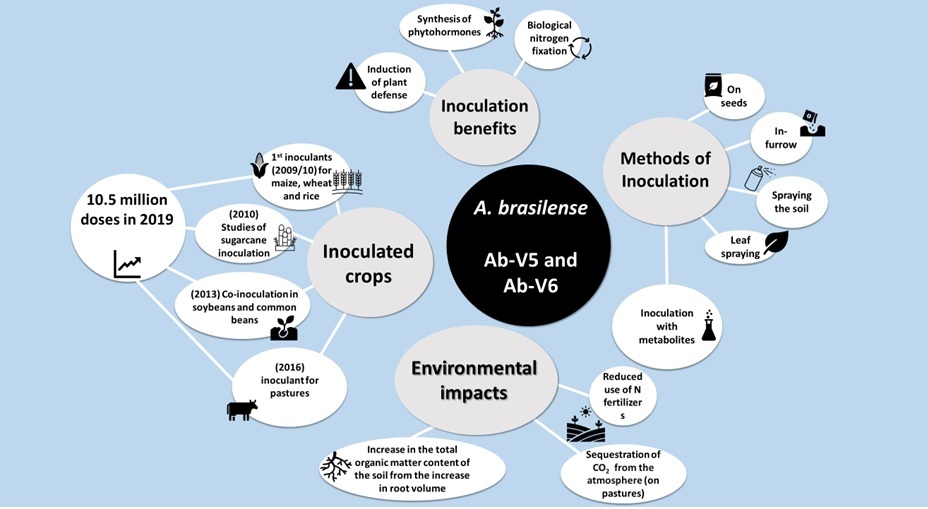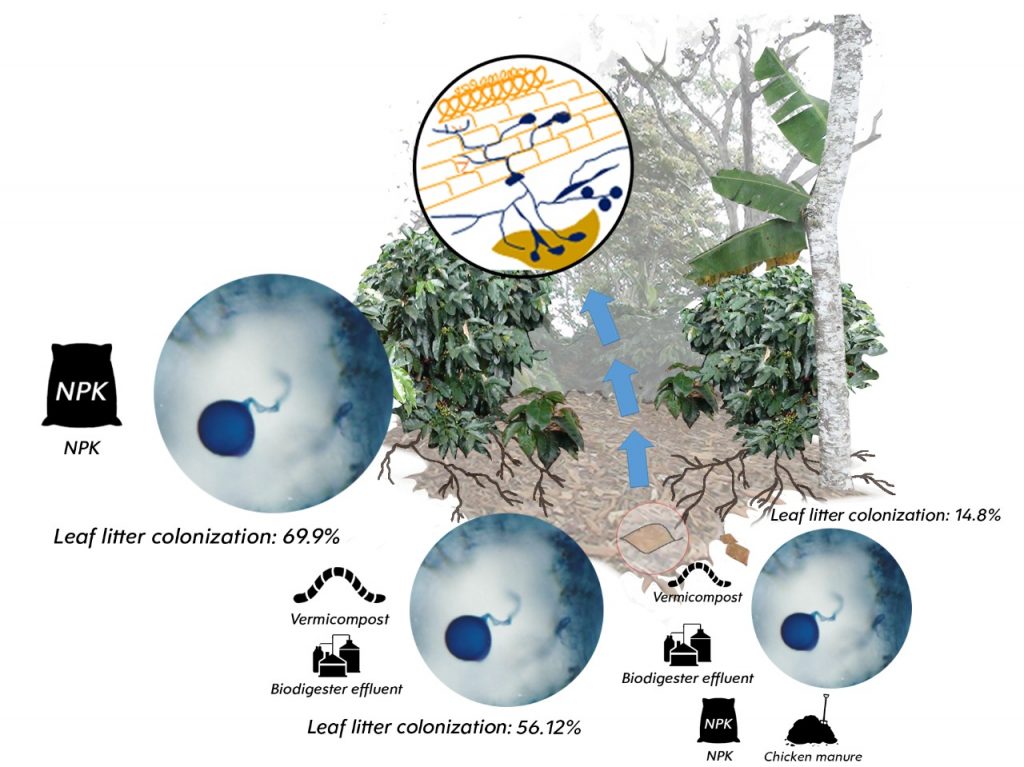Soil-plant-microbiota interactions to enhance plant growth
28/jan/2022
ABSTRACT The nature of the soil is shaped by the presence of roots and the soil microbiota. Bacteria, archaea and fungi profoundly alter plant growth and, in turn, depend on root exudation of carbon-rich and energy-yielding compounds. The microbial communities act as facilitators of plant processes by secreting plant growth regulators, solubilizing minerals, providing N for plant growth, altering plant immune responses and competing with plant pathogens. Characterizing and engineering the processes driven by the multiple microbial taxa that make […]
Brazilian scenario of inoculant production: A look at patents
10/jan/2022
ABSTRACT Technological advances have demonstrated the need for intellectual property rights, and patent granting is one of its most widespread forms. This includes the protection of inoculant formulations for agriculture, in which Brazil is a leader. This study aimed to analyze the number of patents for formulations of biological inoculants for agriculture in Brazil and the microorganisms used. An advanced search was performed in the National Institute of Industrial Property database, using the title and abstract fields. The indexers included […]
Interplays between Atta ants (Formicidae: Attini), soils and environmental properties in the Brazilian Neotropics: a preliminary assessment
30/nov/2021
ABSTRACT Leaf-cutting ants are the most important herbivore in the neotropics, represent active agents of pedobioturbation, and are regarded as ecosystem engineers. These ants have a wide variety of ecological functions, such as pollination, seed dispersal, and tree-growing control. Despite this importance, little is known on their distribution in relation to possible soil and environmental conditions that affect Atta ants occurrence. This study aimed to spatialize the main occurrences of Atta species in the Brazilian territory and evaluate the main […]
Contribution of enzymes to soil quality and the evolution of research in Brazil
30/nov/2021
ABSTRACT Extracellular soil enzymes are fundamental for the functioning of ecosystems. Several processes in the soil depend on the activity of these enzymes, including plant decomposition, soil organic matter formation/mineralization, and nutrient cycling. Moreover, extracellular enzyme activity occurs in the soil and is therefore influenced by environmental factors. Due to the high sensitivity to these factors, extracellular enzymes are used for monitoring soil quality. This review aimed to present the main contributions of soil enzymes to agriculture, emphasizing the dynamics […]
N2O emissions from soils under different uses in the Brazilian Cerrado – A review
24/nov/2021
ABSTRACT: The Cerrado (Brazilian savannah) is a biome of great socio-economic and environmental importance to Brazil. The rapid agricultural expansion in the Cerrado biome areas promoted biogeochemical cycles that affect nitrogen and carbon dynamics, leading to increased greenhouse gas (GHG) emissions. In Brazil, nitrous oxide (N2O) is the main gas in agriculture, and agricultural practices increase emissions into the atmosphere. This review aimed to assess the influence of agriculture on N2O emissions in the Cerrado region, based on existing data […]
Mycorrhizal inoculation and phosphorus fertilization show contrasts on native species of the Brazilian Atlantic Forest and Cerrado
09/set/2021
ABSTRACT Restoration of degraded sites by using native plants like Plathymenia reticulata Benth. and Melanoxylon brauna Schot. is advisable. However, seedlings of both species, when raised on commercial substrates, may present low survival. This study aimed to evaluate the growth of seedlings under inoculation with arbuscular mycorrhizal fungi (AMF). The seedlings were raised on soil sampled from near an adult plant of the same species. The P. reticulata and M. brauna seedlings were grown with or without the inoculation of […]
Edaphic fauna and soil properties under different managements in areas impacted by natural disaster in a mountainous region
24/ago/2021
ABSTRACT Soil invertebrate fauna plays a major role in several environmental processes, and its absence can negatively impact ecosystem health. This study aimed to assess the recovery of epigeal and edaphic invertebrate faunal communities following an environmental disaster, with landslides, mudflow, and river floods, in sites under different management systems, the effects of cover crops on invertebrate fauna, and their relationship with soil physical and chemical properties in the mountainous region of Rio de Janeiro State, Brazil. The following sites […]
Mulching films affecting soil bacterial and fungal communities in a drip-irrigated potato soil
06/ago/2021
ABSTRACT Film mulching is an effective water-saving and yield-increasing measure for potato production in Northwest China. However, the response mechanism of microbial communities to mulching films in the soil is still unclear. In this study, polyethylene film mulching (PM), biodegradable film mulching (BM), liquid film mulching (LM), and non-mulching (NM) were applied on the drip-irrigated soil to investigate the effects of mulching films on soil bacterial and fungal communities through DNA sequencing, Pearson correlation analysis, and redundancy analysis. The results […]
Outstanding impact of Azospirillum brasilense strains Ab-V5 and Ab-V6 on the Brazilian agriculture: Lessons that farmers are receptive to adopt new microbial inoculants
24/fev/2021
ABSTRACT For decades, researchers around the world search for strategies aiming at higher sustainability in agriculture. The microbial inoculants or biofertilizers are biotechnological products used for different purposes, the main one being to totally or partially replace chemical fertilizers, with an emphasis on N-fertilizers, reducing costs of production and decreasing the contamination of the soil, water, and atmosphere. Depending on the microorganism and the inoculated crop, inoculants can also induce plant protection to abiotic and biotic stresses and positively modify […]
Occurrence of arbuscular mycorrhizal fungi in leaf litter and roots of shaded coffee plantations under organic and conventional management
15/fev/2021
ABSTRACT Evidence of arbuscular mycorrhizal fungal colonization of mat litter in various ecosystems plus previous reports of external mycelium of those fungi and mycorrhizal roots in litter from coffee plants and shade trees on coffee plantations suggest that they have a relationship with closed direct nutrient cycling between organic matter and living roots. This relationship was first proposed more than 50 years ago. Mycorrhizal symbiosis in tropical crops is affected by agricultural management practices. This study aimed to assess the […]

